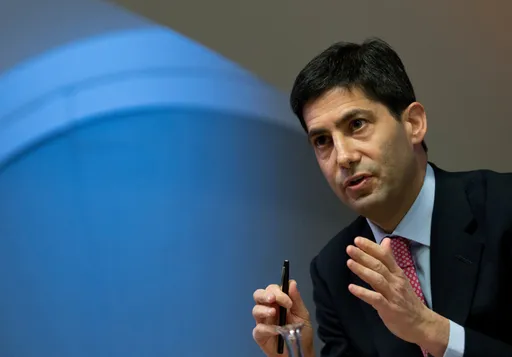Cash-strapped Virgin Australia collapsed on Tuesday, making it the largest carrier to buckle under the strain of the coronavirus pandemic, which has ravaged the global airline industry.
In an announcement to the Australian Stock Exchange, Virgin said it planned to keep operating flights despite handing over the keys to administrators.
"Our decision today is about securing the future of the Virgin Australia Group and emerging on the other side of the Covid-19 crisis," CEO Paul Scurrah said in the statement. "Australia needs a second airline and we are determined to keep flying."
The airline was more than $3.2 billion in debt and had appealed for a $880 million loan to stay afloat, but the government refused to bail out the majority foreign-owned company.
Administrator Vaughan Strawbridge, from accounting firm Deloitte, said more than 10 parties had expressed a "keen interest" in being part of the restructuring plans.
"There has been an extraordinary amount of interest in the business and in the restructuring of Virgin Australia," he told reporters in Sydney.
"And so we are confident that this will result in a restructuring being achieved in a short period of time."
Ratings agency Moody's said unsecured creditors would have to take "a significant haircut" if the restructure was successful.
"Nevertheless, such an outcome may remain preferable to putting the company into liquidation with uncertain recovery prospects," it said.
The airline had already made 1,000 workers redundant and stood down 8,000 of its 10,000 pilots, flight attendants and ground crew.
Strawbridge said the administrators would "seek to preserve as many of those jobs as possible".
Virgin suspended all international routes and scrapped all but one of its domestic routes after Australia shut its borders to limit the spread of Covid-19 and imposed tough restrictions on movement.
The airline more recently began operating limited domestic routes, as well as flights to bring Australians home from overseas, with financial support from the government.
'I'm so proud of you'
Virgin was struggling before the onset of the coronavirus crisis, posting an underlying before-tax loss of $44.8 million last year.
Richard Branson, the billionaire founder of Virgin Group, which owns a 10-percent stake in the airline, tweeted a message in support of the Virgin Australia team.
"I am so proud of you and everything we have achieved together," he said.
"This is not the end of Virgin Australia, but I believe a new beginning. I promise we will work day and night to turn this into reality."
Branson also joined a chorus of voices taking aim at Australia's government for failing to bail out the airline, saying governments in most countries had "stepped up" to help their airlines during the "unprecedented crisis for aviation".
The news from Australia follows the collapse of Britain's biggest domestic carrier FlyBe last month as the collapse in air travel sends several companies into crisis.
The United States has set aside billions of dollars to support the country's airlines including giants American Airlines, Delta Air Lines, Southwest Airlines and United Airlines.
There are concerns about what Virgin's troubles could mean for Australians, who are heavily dependent on air travel in the vast nation, and for the future of a tourist industry already reeling from months-long bushfire and Covid-19 crises.
Australia has just two full-service airlines, Virgin and national flag carrier Qantas, which are complemented by their budget offshoots, Tigerair and Jetstar.
Treasurer Josh Frydenberg insisted Virgin's decision to enter voluntary administration was "not the end of the airline", and the government would work with the administrators to get the best outcome.
"Our objective is a market-led solution. Our objective is two commercially viable, major domestic airlines operating in Australia," he said.
The federal government had urged Virgin's foreign investors who collectively owned 90 percent of the airline — including Singapore Airlines and Etihad Airways, which each owned a 20 percent stake — to come to the rescue.




























